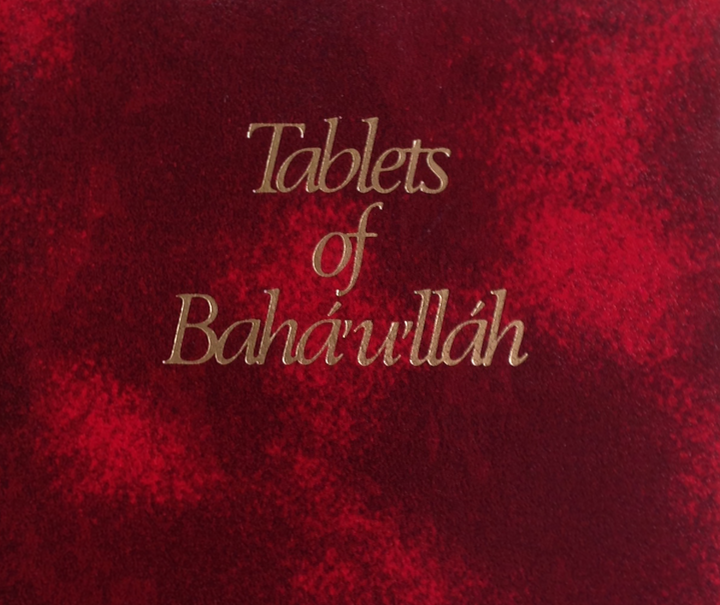
Tahirih – Herald of the Emancipation of Women

Two hundred years ago, virtually everywhere in the world, women lived in subjugation to men. It was a world so different to our own that it is difficult to imagine. It was a world in which women had little role in public life – little opportunity for education, little opportunity to work – other than in the home. In many countries women did not have the right to own property. It was a world where women were often subject to the legal control of male relatives and the law in the west, as much as the east, defended the right of husbands to beat and control their wives.
Tahirih was born into this world and she was one of the heralds of the emancipation of women.
She was born in the 1810’s in the city of Qazvin in Iran where her father was a prominent religious cleric. Unusually, he educated his daughter. As she grew, so did the fame of her knowledge of sacred texts and insight — and despite the contraints under which she was placed as a woman — she entered public discourse — famously defeating male scholars in debate while speaking from behind a curtain (all that was permitted to her). As was the fate of many women of her time she was married at a young age to one of her cousins. Although she had three children, the marriage was unhappy, and she separated from her husband.
Notwithstanding the discouragement of her family she became interested in and then a defender of new religious ideas: a school of thinking which anticipated the imminent arrival of a new messenger of God. Her brother-in-law, who shared her viewpoint was one of those who, in 1844, was setting out to search for the new messenger. So strong was her belief that she gave him a letter confessing her faith, to be handed to the new messenger as soon as he was found. As we saw in a previous article, Tahirih became one of the Letters of the Living (the Apostles) of the Bab, as a result of this letter.
Although she never met the Bab, the prophet-herald of Bahá’u’lláh, she soon became a prominent teacher of the new Babi Faith, attracting a growing following in Iraq, where she was then living. The local Islamic clergy, hostile to her growing influence, agitated to have her placed under house arrest and eventually brought about her expulsion back to Iran.
In 1848, a first conference of the Babis was held in the village of Badasht, Tahirih was one of the most prominent participants – and her actions at the conference is one of the most well-known incidents of her life.
A central topic of debate was how deeply the new faith would depart from the traditions, concepts and practices of the past.
One day, Tahirih appeared at the conference unveiled, announcing “the trumpet has been blown” – quoting words from the Qur’an which symbolised the arrival of a new era and the end of the old. Some, clinging to traditional concepts, were scandalized, viewing her unveiled appearance as indecent. Others understood the significance. Bahá’u’lláh defended her and had given her the title Tahirih (Pure One). When letters of complaint were written to the Bab about Tahirih’s actions, the Bab also defended her – confirming the title that Bahá’u’lláh had given her.
Not long after the conference, Tahirih was arrested and brought back to Tehran where she was placed under house arrest for what remained of her life. Her reputation and esteem was such that the Shah, having seen her after her return, offered her marriage, if she would deny her faith. Her poetic reply was:
Kingdom, wealth and ruling be for thee,
Wandering, becoming a poor dervish and calamity be for me.
If that station is good, let it be for thee,
And if this station is bad, I long for it, let it be for me!
Despite her house arrest she continued to draw visitors (including women of the court) who wanted to hear her words. In addition to her religious knowledge she became famed for her poetry.
The next few years were horrific ones for the Babi community. The religious clergy of Iran fueling religious fanaticism caused the Babis to be attacked wherever they were found – the Babis defending themselves. These conflicts all ended the same way. The defeat and extermination of thousands of Babis – after a heroic but hopeless struggle – often accompanied by horrific public tortures and executions.
In 1852, in an act of revenge, three young extremist Babis attempted to assassinate the Shah. The attempt failed, but unleashed a new wave of persecution which was to take also Tahirih’s life – though she and those who became its victims had nothing to do with the incident.
Martha Root records:
The relative of Táhirih in Qazvin told me that the day before her martyrdom she was called to the presence of His Imperial Majesty Násiri’d-Din Sháh. He said to her that day: “Why should you be a believer in the Báb?” She replied not with her own words, but from the Qu’rán which was about as follows, that I do not worship whom you worship, and you do not worship whom I worship. I shall never worship whom you worship and you will never worship whom I worship. Therefore, permit that I worship whom I wish and you worship whom you wish.
His Majesty bent his head in silence for some time and then arose and left the room without saying anything. However, I heard that the eunuch and others around the Sháh were determined she should be killed, and the next day they had her murdered without the Sháh’s knowledge; and he was very grieved when he learned of it.
Martha Root also records another slightly different account:
Wishing to accomplish her downfall, the chiefs of the government commanded Háji Mullá Kani and Háji Mullá Muhammad Andirmáni, two of the most learned and famous clergymen of Tihrán, to discuss with her and declared that whatever these two Muslim divines decided upon should be done.
“Accordingly discussions were held in the home [where she was imprisoned]. In every meeting she debated with them and they were defeated; still they remained unconvinced and finally wrote a sentence as follows: ‘This woman is astray and a leader astray of others; therefore, her death is necessary and expedient.’ The government accepted this, added some false charges to it and spread it broadcast among men and women. Thus all were anticipating her death. However, notwithstanding the proclamation, through fear they killed her secretly by night.
Tahirih had foreknowledge of her death. Abdu’l Baha records her death as follows:
“Thus she remained, a helpless captive. Then came the attempt on the life of the Sháh; a farmán was issued; she was sentenced to death. Saying she was summoned to the Prime Minister’s, they arrived to lead her away from the Kalántar’s house. She bathed her face and hands, arrayed herself in a costly dress, and scented with attar of roses she came out of the house.
They brought her into a garden, where the headsmen waited; but these wavered and then refused to end her life. A slave was found, far gone in drunkenness; besotted, vicious, black of heart. And he strangled Táhirih. He forced a scarf between her lips and rammed it down her throat. Then they lifted up her unsullied body and flung it in a well, there in the garden, and over it threw down earth and stones. …”
[‘Abdu’l-Bahá. “Memorials of the Faithful.”]
As has been noted by one observer – the secretiveness with which her life was ended was in marked contrast to the public and grotesque torture and execution imposed on other Babi victims caught up in the same wave of persecution.
Her death has not silenced her voice. Her poetry is famed around the world.
I would explain all my grief
Dot by dot, point by point
If heart to heart we talk
And face to face we meet.
To catch a glimpse of thee
I am wandering like a breeze
From house to house, door to door
Place to place, street to street.
In separation from thee
The blood of my heart gushes out of my eyes
In torrent after torrent, river after river
Wave after wave, stream after stream.
This afflicted heart of mine
Has woven your love
To the stuff of life
Strand by strand, thread to thread.[1]
She inspired and continues to inspire generations after her. Martha Root, herself an astonishing woman pioneer – held her as a role model. She writes of the many men who paid tribute to her and to women like:
Marianna Hainisch of Vienna, Austria, mother of the President of Austria when I visited her in 1925, said to me: “The greatest ideal of womanhood all my life has been Táhirih (Qurratu’l-‘Ayn) of Qazvin, Irán. I was only seventeen years old when I heard of her life and her martyrdom, but I said: “I shall try to do for the women of Austria what Táhirih gave her life to do for women of Persia.'” No woman in Austria has done so much for freedom and education for women as has Mrs Hainisch.
Today, Tahirih is recognised as the founder of the women’s movement in Iran.
Muhammad Iqbal, a poet philosopher whose work is revered in Pakistan was also one of her admirers. He wrote:
Think not that Tahirih has left this world.
Rather she is present in the very conscience of her age.[2]
Tahirih’s famous final words to her executioners were:
You can kill me as soon as you like, but you cannot stop the emancipation of women.”[3]
Selected Sources:
Tahirih the Pure by Martha Root
The Dawn Breakers, Nabil’s Narrative
Memorials of the Faithful, Abdu’l Baha
Táhirih in History: Perspectives on Qurratu’l-‘Ayn from East and West
A Gathering of the Poems of Tahirih Susan Gammage
(This article is the 77th in a series of what I hope will be 200 articles in 200 days for the 200th anniversary of the birth of Bahá’u’lláh. The anniversary is being celebrated around the world on 21 and 22 October 2017, The articles are simply my personal reflections on Bahá’u’lláh’s life and work. Any errors or inadequacies in these articles are solely my responsibility.)
Image: No pictures of Tahirih from her time exist. The image above has been chosen in an effort to represent Tahirih as she has come to us through history – a young thinker who has freed herself and others to see the world in new ways. As an image from our time, it also reflects back to the time when Tahirih and other pioneers struggled all over the world for the emancipation of women. Their work and sacrifices created the world in which we live. Image source







